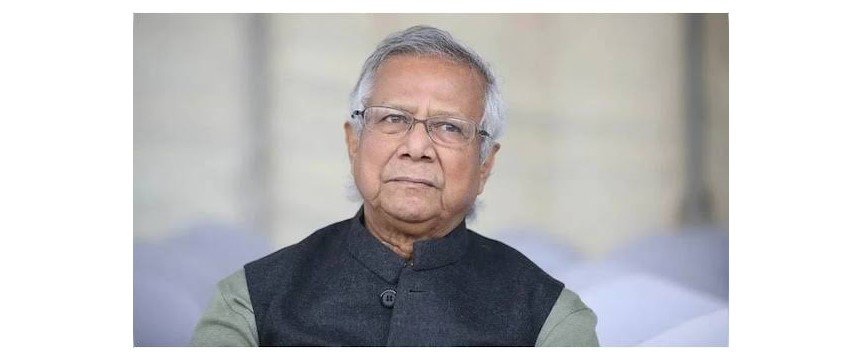Islamabad, 7 August 2024, (TDI): Bangladesh’s acting chief executive is Nobel Peace Prize laureate Muhammad Yunus, a longtime political rival of Bangladesh’s ousted Prime Minister Sheikh Hasina.
One day after Ms. Hasina’s resignation due to weeks of violent strikes, the 84-year-old was appointed as actin Prime Minister.
Professor Yunus has received praise for his innovative use of microloans, but Ms. Hasina saw him as a public enemy. He is currently out on bail and contesting a six-month jail sentence in a case that he claims is politically motivated.
A military-led government was rejected by the students who spearheaded the large-scale demonstrations that toppled Ms. Hasina, and they insisted that Prof. Yunus lead the transitional government.
After President Mohammed Shahabuddin met with military and student groups, Prof. Yunus was named principal adviser of the temporary administration.
How can I say no to the students’ plea to take over at this challenging moment when they have given so much?” Professor Yunus remarked.
His spokesperson stated that he is on his way back to Dhaka from Paris, where he is having a small medical operation.
Also read: Sheikh Hasina: An Iconic Pro-Democracy Figure Turned Autocrat
Early in July, university students in Bangladesh started protesting, calling for the removal of quotas in public service positions. However, the demonstrations quickly grew into a larger antigovernmental campaign.
It is estimated that over 400 people have perished in conflicts between demonstrators and government forces, the majority of them were civilians who were shot by police.
The worst day of the movement was Monday, when over 100 individuals lost their lives nationwide. Additionally, hundreds of police stations were set on fire.
Just hours before to demonstrators occupying and pillaging the former prime minister’s official mansion in the capital city of Dhaka, Ms. Hasina announced her resignation and fled to India’s neighbor. That put an immediate and sudden end to her over 15-year reign.
The previous prime minister faced mounting criticism for stifling her critics and imprisoning her political rivals, despite the fact that Bangladesh’s economy expanded over the previous ten years.
Some were freed shortly after Ms. Hasina’s hurried departure, including activist Ahmad Bin Quasem and former Prime Minister Khaleda Zia.
The principal opposition party, the Bangladesh Nationalist Party, led by Ms. Zia, abstained from voting in 2014 and 2024 on the grounds that Ms. Hasina would not allow for free and fair elections.
The 78-year-old was sent in jail in 2018 on corruption-related accusations, which she claimed had political motivations.
Human rights organizations claim that Mr. Quasem’s detention in 2016 was only one of hundreds of people who were forcibly disappeared under Ms. Hasina’s administration.
A victim of Ms. Hasina’s wrath too, Prof. Yunus, who was convicted Bangladesh six months in prison in January for breaking labor regulations, has stated.
Since 2011, when he was allegedly accused of defaming leaders in Bangladesh, he has been subject to several claims.
He founded Grameen Bank in 1983 with the goal of assisting the impoverished in launching small businesses through microloans with extended terms. Since then, the idea has spread around the globe.
He was fired after it was alleged that he had avoided paying taxes and had continued to work at Grameen Bank past the required retirement age. However, Professor Yunus insisted that these accusations were unfounded.
Also read: Pakistan Squad for Bangladesh Tests Announced
In 2006, he and the bank received the Nobel Peace Prize for demonstrating that “even the poorest of the poor can work to bring about their own development.”
Though Ms. Hasina referred to him as a “bloodsucker” of the impoverished and charged his bank of charging excessive interest rates, he gained recognition on a global scale as the “banker to the poor.”
His failed attempts to form a political party are thought to have been the cause of the conflict with Ms. Hasina, but it was never made public at the outset.
Although it’s unknown at this point if India is Ms. Hasina’s eventual destination, she is currently there. Even though she was a close ally of Indian Prime Minister Narendra Modi, many think that is unlikely.
India will be reluctant to irritate the new Dhaka government because the two countries share a 4,096 km (2,545 mile) border.
According to India’s foreign minister S Jaishankar, more troops have been stationed near the border.
After Prof. Yunus’s (nobel Peace Prize Winner) appointment was made public, world leaders urged Bangladesh to preserve democracy.
US Secretary of State Antony Blinken stated, “The interim government’s decisions must preserve the rule of law, honor democratic ideals, and represent the will of the people.”
All parties were urged to “respect universal rights” and abstain from violence by Australian Foreign Minister Penny Wong.



